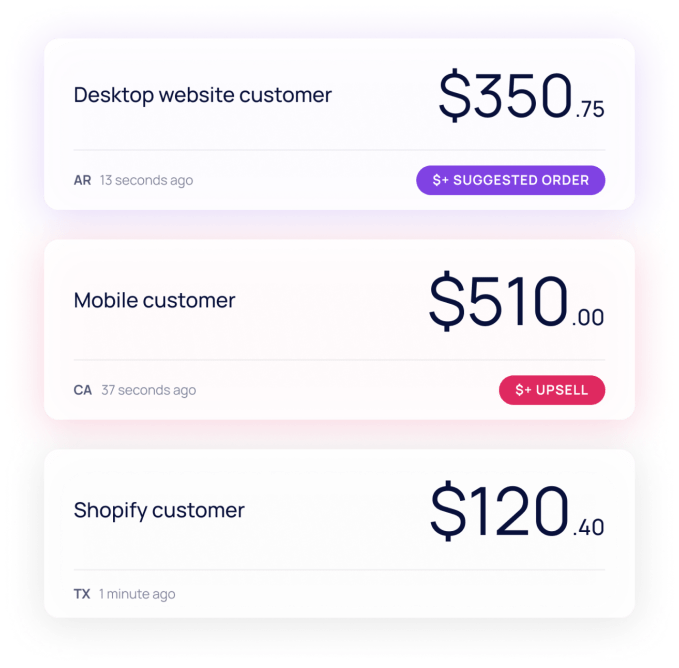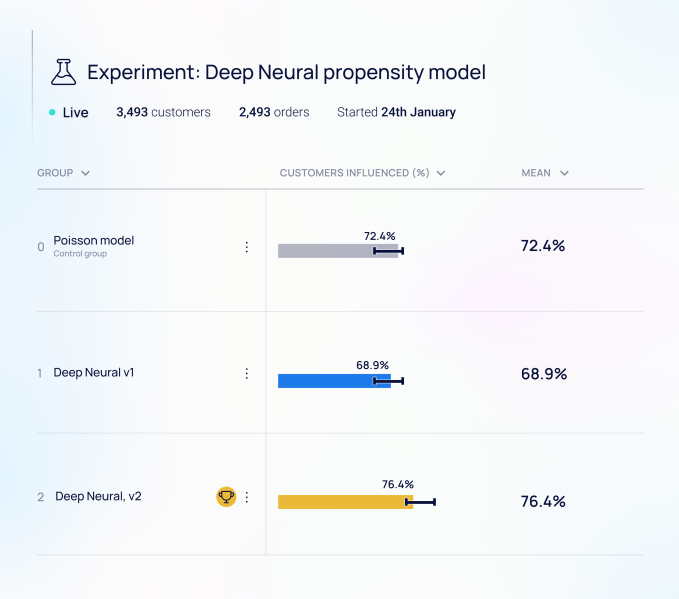Can AI automate enterprise decision-making? It’s an exceptionally broad and challenging task — assuming it’s within the realm of possibility. But that’s what startup Arena claims to do, fueled by a round of funding ($32 million) led by Initialized Capital and Goldcrest Capital along with Founders Fund, Flexport and a colorful cast of characters, including retired general David Petraeus, Peter Thiel, and Y Combinator CEO Michael Seibel.
New York–based Arena is the brainchild of Pratap Ranade and Engin Ural, who co-founded the company in 2020. The two were inspired to build a platform that could, leveraging predictive algorithms, help businesses formulate strategies to navigate “uncertain” environments — like a global pandemic.
Ranade, who attended Stanford and Columbia, was previously an associate partner at McKinsey and co-founded web-scraping startup Kimono Labs, which was acquired by Palantir in 2016. Ural was an app developer at Goldman Sachs before joining Palantir as an engineer, where he met Ranade.
Arena’s services are wrapped up in a lot of hyperbolic language, but they’re relatively straightforward in execution. One of the startup’s tools uses AI techniques to simulate an economy, testing out millions of product pricing configurations to arrive at an optimal model for a company. It brings to mind the AI Economist, a Salesforce-developed research environment that similarly runs millions of simulations to come up with plausible fiscal policy.
Beyond pricing, Arena can ostensibly simulate things like inventory management. Ranade also claims it can account for “deviations” in the economic environment, like headwinds stemming from snarled supply chains, in making recommendations to customers (i.e., execs).

“Without Arena, enterprises traditionally approach such decisions in a few ways: Hiring large teams of people to make these decisions, buying decision assistance software to help people in operational roles make data-driven decisions, or do nothing and continue pushing through with traditional processes,” Ranade told TechCrunch via email. “Each of these approaches has merit, but they are a far cry from the full promise of AI: truly intelligent machines that operate autonomously, on our behalf, to elevate human potential.”
Arena clients feed the platform data like SKU-level sales, pricing, inventory at the location level and shopper behavior during e-commerce sales. Arena augments that data with context from what Ranade calls the “demand graph,” which provides broader, real-time market signals. Together, these inputs are used to create the aforementioned simulations, which in turn produce models for pricing, inventory and marketing that are then fine-tuned world data.
“Today, when the most sophisticated, data-centric business-to-business companies run a promotion, data scientists analyze past data to determine the best type of promotion to run for a specific product in a specific market. They then load the promotion into their enterprise resource planning system, and weeks after, will analyze its performance,” Ranade said. “With Arena, this entire process is autonomous … Under the hood, Arena’s AI actively adapts to changing price elasticity and personalizes to customer behavior, making adjustments as it learns in real-time to drive bottom line impact.”
Ranade makes the remarkable claim that Arena’s customers — which include Anheuser-Busch InBev and other “select” Fortune 500 brands in e-commerce, automotive, manufacturing and financial services — have been able to lower the costs of goods and services and make their supply chains more resilient thanks to its technology. It’s unclear to what extent that’s true. But for what it’s worth, Ranade says that Arena is currently making “millions” of decisions across both digital and physical channels.
“We’ve found that Arena drives a step change in value because we’re not only introducing a new paradigm of decision-making for the enterprise, but also meeting C-suite and their companies’ existing infrastructure where they are,” Ranade said. “The pandemic was actually a reaffirming moment for us. Our technology is expressly designed to handle shocks — cases where past data no longer represents the future. The pandemic showed that our technology drives significant, measurable results for our customers, especially in highly volatile decision environments.”

The closing of Arena’s Series A today marks the company’s first external raise, Ranade tells TechCrunch. The business had grown “profitably” up to this point. But Ranade and Ural believed that going the venture route would allow them to expand Arena’s core technology while growing into industries such as manufacturing, renewable energy and financial services.
It’ll certainly need a substantial war chest to compete in the growing market for data analytics products. O9 Solutions, which applies analytics to the supply chain and inventory planning and management, recently raised $295 million in a funding round that values the company at $2.7 billion. Unsupervised, Pecan.ai and Noogata compete more directly with Arena, delivering tools designed to make predictions about metrics like customer lifetime value, churn and retention, sales and on-time deliveries.
xCash flows freely where it concerns enterprise analytics — the global big data and business analytics segment could be worth nearly $700 billion by 2030, depending on which analyst you place your faith in. But the challenge for vendors like Arena is convincing potential customers that they can deliver on their promises. A recent NewVantage Partners survey found that many established companies continue to struggle in their efforts to become “data-driven,” with less than a third saying that they have a “well-articulated” data strategy. For many — particularly small- and medium-sized businesses — the return on investment remains unclear.
Arena’s headcount stands at 50 people today, 90% of whom are members of the engineering, data science and product development staff at the startup’s downtown office. Ranade didn’t respond to a question about whether Arena plans to hire within the next year.































Comment